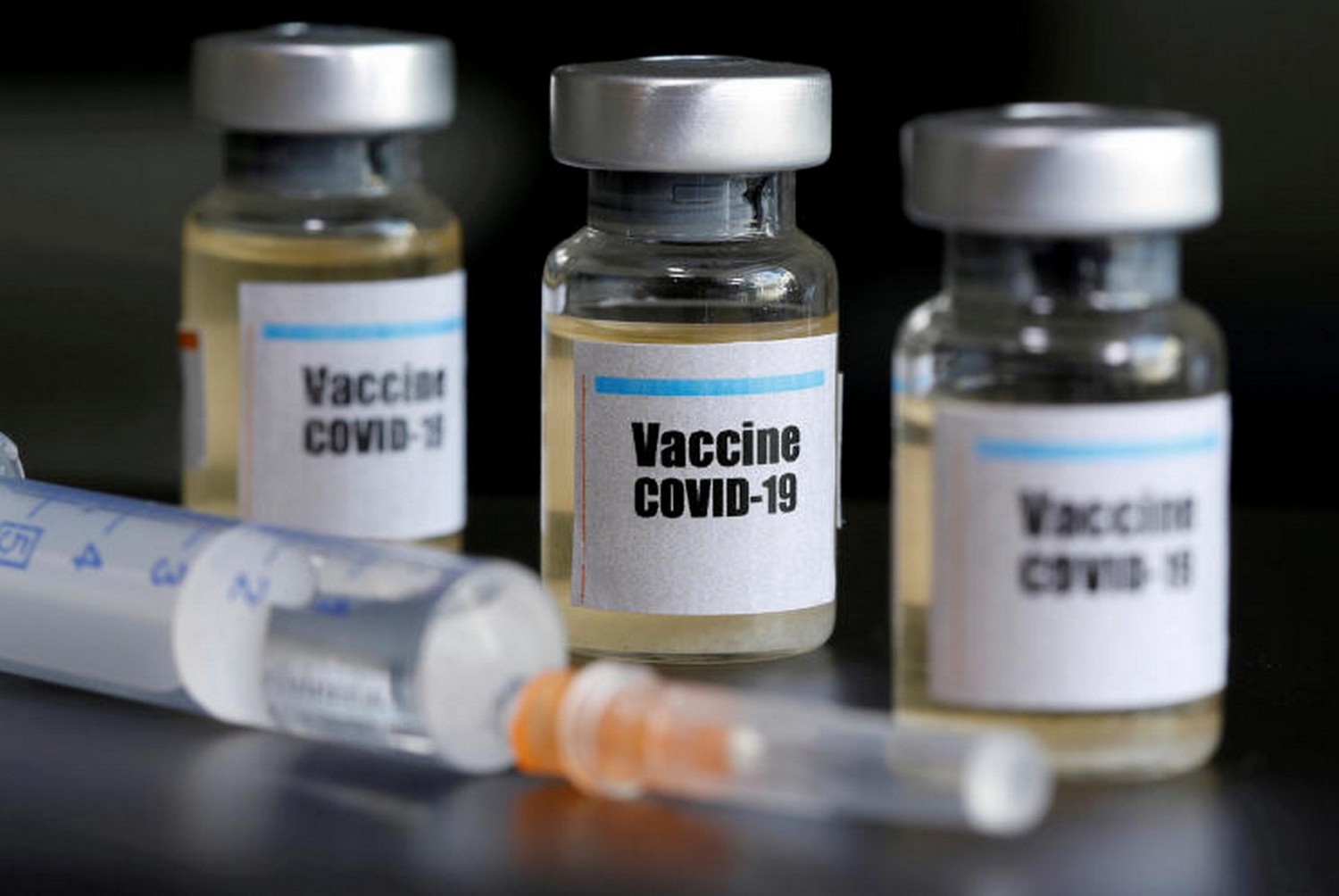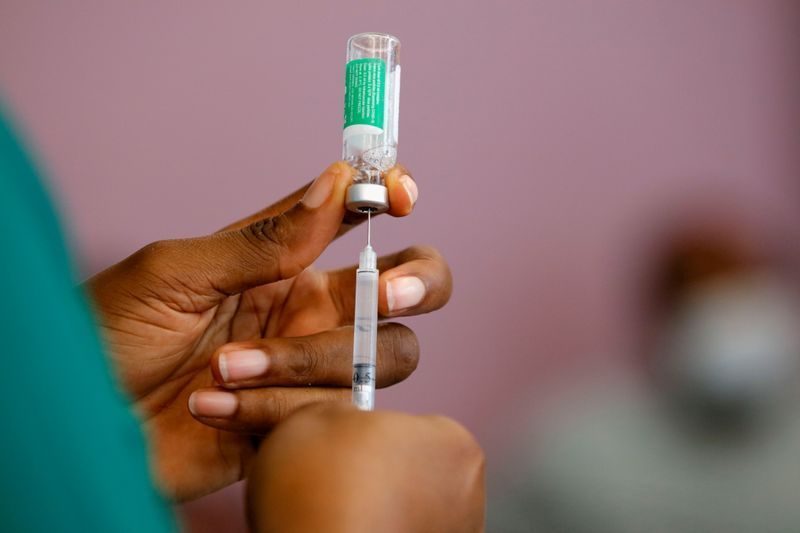“Vaccines are safe, effective and lifesaving”- Alex Azar.
Vaccines work by training and preparing the body’s natural defenses (immune system) to recognize and fight off viruses and bacteria they target (World Health Organization, WHO). However, depending on the type of vaccine, immunity may be built immediately or it can take a couple of days before immunity is built post-vaccination. After the immune response, if one is exposed to the disease-causing germs that you are vaccinated against, the body is immediately ready to destroy them due to the memory cells built after the immune reaction from the vaccination, preventing an illness.
Vaccine development is a complex process that can take a number of years. However, during this pandemic, the process was effectively accelerated without compromising its efficacy. A number of vaccines have been developed over centuries and the science technology behind vaccine development has advanced considerably. Notable amongst them are the polio, measles, rabies, smallpox vaccines amongst others.

In human’s, vaccines mostly undergo clinical trials of 3 phases before getting authorisation for mass production. Phase I, mostly assesses the safety of the vaccine in humans and determines the type and extent of immune response the vaccine provides. Phase II studies the safest dose at which an immune response is generated, its immunogenicity (effectiveness to elicit an immune response) and mode of delivery. Phase III trials expand I and II in a larger population. After the phase III trials, when the response is positive, a license is submitted to FDA for approval. Phase IV is an optional trial, after the vaccine is released. It involves post-market surveillance to test its efficacy, safety, and adverse reactions related to the vaccine.
The covid-19 vaccine just like all other vaccines works by stimulating the body’s immune system to produce an immune response without causing an active infection. The vaccines currently approved for use are the Pfizer/BioNTech and Moderna vaccines which are mRNA vaccines whiles the Oxford/AstraZeneca, Sputnik V and Johnson and Johnson vaccines are vector-based vaccines. Both mRNA and vector based vaccines will not cause an active infection in patients who receive the vaccine. They do not affect nor interact with the host’s DNA and do not cause any form of mutation of the human genome.
Ghana received its first batch of 600,000 doses from Covid -19 Vaccine Global Access (COVAX) , which is a global initiative launched by WHO, co-led by Gavi and the Coalition for Epidemic Preparedness Innovations (CEPI). Its main aim is to ensure fair and equitable vaccine distribution globally and to the world’s most vulnerable. The first phase of the vaccination roll out in Ghana started on the 2nd of March 2021.

All vaccines currently on the market have undergone all 3 phases of clinical trials and have been approved for use in humans in many countries across the world. It’s not a clinical trial being held in Ghana neither is it a ploy by a country to wipe out Africans. The AstraZeneca vaccine is effective against the UK strain of the virus which is currently the dominant strain in Ghana. There are concerns with its effectiveness in preventing mild to moderate cases caused by the South African strain. Research is still ongoing with regards to that.
The vaccines currently available are given in two doses aside the Johnson and Johnson. Pfizer’s second dose is given 21 days after the first shot, Moderna’s second vaccine dose is given 28 days after the first shot, AstraZeneca’s second dose is given eight weeks after the first shot and SputnikV’s is given 21 days after the first shot. Johnson and Johnson’s vaccine is a single shot. The immunity provided by Moderna’s vaccine is expected to last for a year; the rest are still under study. We may not know for now how long immunity may last but we all know how severe a Covid infection can be and the number of deaths associated with it, not forgetting post–recovery complications due to it. You risk losing a loved one when they contract the virus; hence getting a vaccine is a much safer option.
It takes about 14-21 days after the second dose for a full immune response to be generated, (which includes a built-up of memory cells) for the host to obtain immunity. Hence, if the host is exposed during the 14 day period, the individual can get sick with Covid 19, which doesn’t mean the vaccine did not, but immunity had not been achieved yet. Furthermore all safety protocols need to be observed till herd immunity (about 75% of the population has been vaccinated) is achieved. This is because the vaccine reduces your chances of getting moderate to severe illness, but it doesn’t stop transmission from one infected person to an uninfected person.
The common side effects include headache, pain at the site of injection, fever, fatigue, vomiting and joint pains. These side effects may mimic symptoms of an active infection is expected as an immune response is being generated. The side effects normally last for 48-72 hours but if it persists, talk to a health professional. There have been concerns about blood clots developing in a vast minority of individuals who have taken the vaccine. Currently information from European Medicines Agency (EMC) indicates that there is no casual link between the development of clots and the vaccine, a position subsequently upheld by WHO. However, investigations are still ongoing as with all other vaccines and medications. FDA is also currently monitoring the issue and currently, no such event of blood clots linked to the vaccine has been recorded in Ghana, hence the vaccines are safe.

For patients who have previously tested positive to Covid and recovered, studies show they have some form of immunity that can last for 3-8 months. People in this category can still take the vaccine preferably after three months, when the immunity developed from the active infection starts to wean off.
It is not advisable for pregnant women, children under 18 years and people over 65 years to take the vaccine. This is because, no clinical trials were done on people within this group and there is not substantive data on its effect in this group. For people in this group, it’s advisable to talk to a health professional before taking the shot. In immuno-compromised individuals it is done on a case-by-case basis. Breastfeeding mothers can safely take the vaccine.

Based on current knowledge, the vaccines are unlikely to pose any risk to fertility short or long term in both males and females. It also doesn’t affect erection and sperm production. Covid-19 vaccines are still being studied just like all other vaccines.
An all-hands-on deck approach is needed to manage this pandemic if not to end it. The best and most effective way to do this is through vaccination. Let’s protect ourselves and others who cannot receive the vaccine now as we strive to achieve herd immunity. Whiles the vaccine rollout is ongoing, let’s not forget to observe the safety protocols: washing hands frequently, using alcohol-based sanitizers, wearing of face masks, ensure social distancing.
By Rebecca ANUMEL-ACKAH
The author is a pharmacist. You can reach the author through [email protected]










